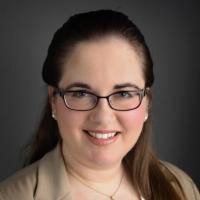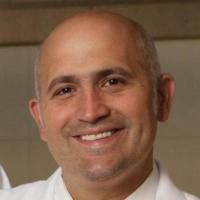Can PROMIS measures be used to create subgroups for patients seeking orthopaedic care?
Date
2021-07
Journal Title
Journal ISSN
Volume Title
Repository Usage Stats
views
downloads
Citation Stats
Abstract
Aims
Patient-reported outcome measures have become an important part of routine care. The aim of this study was to determine if Patient-Reported Outcomes Measurement Information System (PROMIS) measures can be used to create patient subgroups for individuals seeking orthopaedic care.Methods
This was a cross-sectional study of patients from Duke University Department of Orthopaedic Surgery clinics (14 ambulatory and four hospital-based). There were two separate cohorts recruited by convenience sampling (i.e. patients were included in the analysis only if they completed PROMIS measures during a new patient visit). Cohort #1 (n = 12,141; December 2017 to December 2018,) included PROMIS short forms for eight domains (Physical Function, Pain Interference, Pain Intensity, Depression, Anxiety, Sleep Quality, Participation in Social Roles, and Fatigue) and Cohort #2 (n = 4,638; January 2019 to August 2019) included PROMIS Computer Adaptive Testing instruments for four domains (Physical Function, Pain Interference, Depression, and Sleep Quality). Cluster analysis (K-means method) empirically derived subgroups and subgroup differences in clinical and sociodemographic factors were identified with one-way analysis of variance.Results
Cluster analysis yielded four subgroups with similar clinical characteristics in Cohort #1 and #2. The subgroups were: 1) Normal Function: within normal limits in Physical Function, Pain Interference, Depression, and Sleep Quality; 2) Mild Impairment: mild deficits in Physical Function, Pain Interference, and Sleep Quality but with Depression within normal limits; 3) Impaired Function, Not Distressed: moderate deficits in Physical Function and Pain Interference, but within normal limits for Depression and Sleep Quality; and 4) Impaired Function, Distressed: moderate (Physical Function, Pain Interference, and Sleep Quality) and mild (Depression) deficits.Conclusion
These findings suggest orthopaedic patient subgroups differing in physical function, pain, and psychosocial distress can be created from as few as four different PROMIS measures. Longitudinal research is necessary to determine whether these subgroups have prognostic validity. Cite this article: Bone Jt Open 2021;2(7):493-502.Type
Department
Description
Provenance
Citation
Permalink
Published Version (Please cite this version)
Publication Info
George, Steven Z, Xiaofang Yan, Sheng Luo, Steven A Olson, Emily K Reinke, Michael P Bolognesi and Maggie E Horn (2021). Can PROMIS measures be used to create subgroups for patients seeking orthopaedic care?. Bone & joint open, 2(7). pp. 493–502. 10.1302/2633-1462.27.bjo-2021-0045.r1 Retrieved from https://hdl.handle.net/10161/23473.
This is constructed from limited available data and may be imprecise. To cite this article, please review & use the official citation provided by the journal.
Collections
Scholars@Duke

Steven Zachary George
Dr. George’s primary interest is research involving biopsychosocial models for the prevention and treatment of chronic musculoskeletal pain disorders. His long term goals are to 1) improve accuracy for predicting who is going to develop chronic pain; and 2) identify non-pharmacological treatment options that limit the development of chronic pain conditions. Dr. George is an active member of the American Physical Therapy Association, United States Association of the Study of Pain, and International Association for the Study of Pain.
Dr. George’s research projects have been supported by the National Institutes of Health, Department of Defense, and Orthopaedic Academy of the American Physical Therapy Association. Dr. George and his collaborators have authored over 330 peer-reviewed publications in leading medical, orthopaedic surgery, physical therapy, rehabilitation, and pain research journals. He currently serves as Editor-in-Chief for the Physical Therapy & Rehabilitation Journal. Dr. George has also been involved with clinical practice guideline development for the Academy of Orthopaedic Physical Therapy and the American Psychological Association.
Dr. George has been recognized with prestigious research awards from the American Physical Therapy Association, American Pain Society, and International Association for the Study of Pain. For example from the American Physical Therapy Association: he was named the 21st John H.P. Maley Lecturer, recognized as a Catherine Worthingham Fellow in 2017, and selected for the Marian Williams Award for Research in Physical Therapy in 2022.

Sheng Luo

Steven Arthur Olson
As an Orthopedic Surgeon my primary focus of research is joint preservation. My primary clinical interests are Orthopedic Trauma and Hip Reconstruction.
In Orthopedic Trauma my research interests are 1) Basic science investigations of articular fractures with two current animal models in use. 2) Clinical research includes evaluation of techniques to reduce and stabilize articular fractures, as well as management of open fractures.
In the area of Hip Reconstruction my areas of research are 1) Hip Arthroscopy and treatment of hip disorders, and treatment of labral tears in the treatment of hip pain. 2) Periacetabular osteotomy for the treatment of hip dysplasia.

Emily Reinke
Dr. Reinke is the Senior Research Program Leader in Sports Medicine. She manages the divisional portfolio and research staff. While supporting the industry sponsored studies, her focus is on PI-initiated research of all areas of interest where she assists as needed with study design, protocol logistics, database design, EMR data extraction, analysis, project presentation, and grant preparation. Her personal expertise is in ACL research, as she has been a member of the Multicenter Orthopaedic Outcomes Network (MOON) knee group since 2007.

Michael Paul Bolognesi
As chief of the adult reconstruction service, the majority of my research effort has been directed toward clinical outcomes, implant survivorship, functional recovery, the biology of hip and knee arthritis and cost effectiveness.

Maggie Elizabeth Horn
Unless otherwise indicated, scholarly articles published by Duke faculty members are made available here with a CC-BY-NC (Creative Commons Attribution Non-Commercial) license, as enabled by the Duke Open Access Policy. If you wish to use the materials in ways not already permitted under CC-BY-NC, please consult the copyright owner. Other materials are made available here through the author’s grant of a non-exclusive license to make their work openly accessible.
